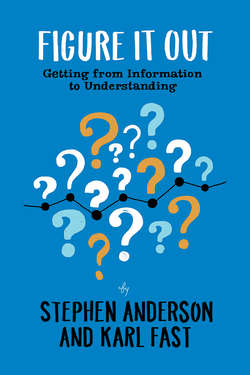Читать книгу Figure It Out - Stephen P. Anderson - Страница 24
На сайте Литреса книга снята с продажи.
What Is the Truth About Embodiment?
ОглавлениеWhat is the truth about embodiment? Don’t ask the scientists because nobody knows. Not really. This is how science works. Hypotheses are put forth, experiments are designed, evidence is collected, debates rage, and scientific knowledge slowly moves forward. For decades, the evidence has been building in favor of an embodied view of mind. But here’s the thing: the rock-bottom truth doesn’t matter. Not for our purposes, at least.
The embodiment debate stems from a simple yet eternal question: How does the mind really work? Yet where scientists are looking for truth, the rest of us seek something else. All we require is a perspective on cognition that allows us to make substantial headway on a wide range of messy, complex, real-world problems of understanding. We need better ways to recognize how people solve problems, create meaning, and make decisions. That is precisely the focus of subsequent chapters in this book. Debating the existence of mental representations is part of building theories, but largely irrelevant for creating more understandable information. Where scholars want scientific truth, we need analytic utility: a way to examine problems of understanding so that we can create better ways of thinking. In short, we’re more interested in utility than in truth.
Taking embodiment seriously means there is much to be gained by shifting our position away from the brainbound view and toward the radical one. That means recognizing that our default view is the brainbound model and the limitations it imposes. But it doesn’t mean we have to also become radicalized. Representations and how we transform them, whether in our head or in the world, are a useful way of looking at problems of understanding. In fact, much of this book is about how we can create understanding by moving representations out of the head, putting them into the world, and using technologies to manipulate them. As authors, we like the way Andy Clark puts it: Some problems seem to be “representation hungry.”27
